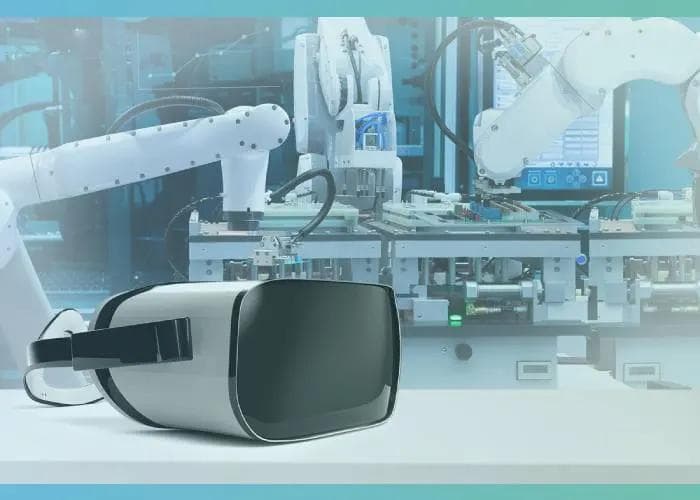
Published by:
Dalibor Vuchikj
30 Jan 2023
My vision is to support companies and organizations in the development and implementation of mechanical engineering and operational projects. As a Mechanical Engineer by education, combined with a deep passion for new technologies. Specialize in offering cutting-edge digital methods and technologies, including 3D scanning, intelligent 3D modeling, documentation, 3D data processing and optimization, analysis, simulations, VR integration, and more.
Metaverse In Industrial Projects A New Frontier Of Innovation And Collaboration
The Power of the Metaverse in Industrial Projects
The metaverse, a virtual world where people and digital objects interact, is rapidly emerging as a transformative tool for industries seeking to drive innovation and enhance collaboration. This article explores how the metaverse can revolutionize industrial projects, achieving unprecedented levels of efficiency and creativity.
Virtual Prototyping and Testing
Creating prototypes in the metaverse offers significant advantages over traditional physical prototypes. Industrial teams can simulate and test products in a virtual environment before they are built, saving time and reducing costs. This process helps identify potential issues early, preventing major problems down the line. Furthermore, virtual prototypes are easily modified and updated, allowing teams to iterate quickly and optimize designs efficiently.
Remote Collaboration
The metaverse enables real-time collaboration among teams from different locations, eliminating the need for travel and reducing associated costs. Team members can communicate and interact with each other and with virtual prototypes and simulations, facilitating complex problem-solving and project completion. This seamless interaction fosters innovation and accelerates project timelines.
Immersive Training
The metaverse provides immersive training experiences for employees and customers. Industrial companies can use the metaverse to train employees on new equipment or technology, offering a hands-on learning experience without the risks associated with physical training. Customers can benefit from virtual factory tours or product demonstrations, providing a unique and engaging experience that enhances understanding and satisfaction.
Virtual Trade Shows and Events
Hosting virtual trade shows and events in the metaverse offers a cost-effective and convenient alternative to in-person gatherings. Attendees can interact with each other and with digital objects in a dynamic virtual environment, enabling networking, learning, and engagement. This approach reduces logistical challenges and expenses while providing a rich, interactive experience for participants.
Decentralized Supply Chain Management
The metaverse facilitates decentralized supply chain management systems, allowing participants to collaborate securely and transparently. By leveraging blockchain technology, supply chain participants can share information, coordinate activities, and collaborate in real-time, resulting in faster, more efficient supply chains. This enhances efficiency, reduces costs, and improves supply chain visibility.
Conclusion
In conclusion, the metaverse offers a powerful new tool for industrial projects. It enables virtual prototyping and testing, remote collaboration, immersive training, virtual trade shows and events, and decentralized supply chain management. By leveraging the metaverse, industrial teams can drive innovation, improve efficiency, and collaborate in novel ways. The future of industrial projects is here, and the metaverse is leading the way.